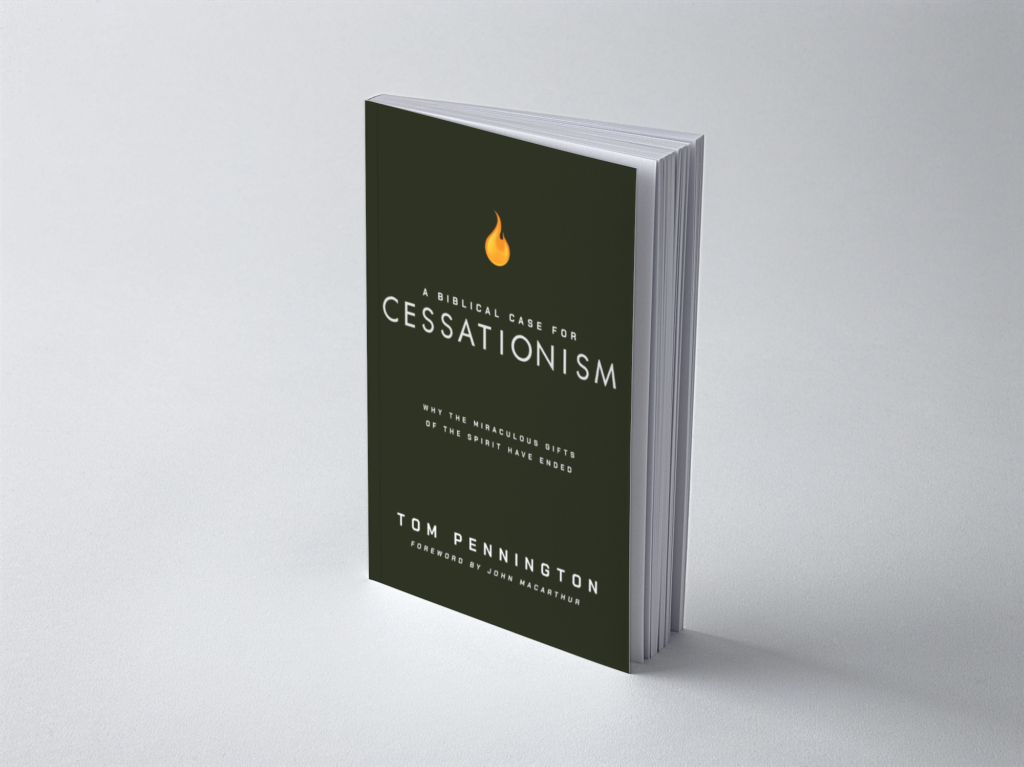It should be obvious to anyone who observes the modern charismatic movement that the gifts of healing, prophecy, and speaking in tongues practiced by today’s Pentecostals are nothing like the apostolic gifts described in Acts and 1 Corinthians. Furthermore, the peculiar manifestations that have dominated that movement in recent decades (holy laughter, drunkenness in the Spirit, spiritual birthing, fire tunnels, animal noises, people being slain in the spirit, and other peculiar charismatic practices) bear no resemblance whatsoever to the work of the Holy Spirit as described in the New Testament. (See, for example, John 15:26; 16:13-15; Galatians 5:22-23).
The apostolic office and the miraculous gifts that constitute “signs of an apostle” (2 Corinthians 12:12) have ceased. That is self-evident. No one anywhere today can credibly claim to have a healing gift comparable to Peter’s (Acts 5:12-16) or Paul’s (19:11-12). The glossolalia charismatics today call “speaking in tongues” are not identifiable languages. Charismatic prophecies are notoriously fallible and often dangerously false. The brands of miracles routinely claimed by the charismatic movement do not come close to meeting the standard of undeniable reality that characterized the authentic signs and wonders described in Scripture.
The apostolic office and the miraculous gifts that constitute “signs of an apostle” (2 Corinthians 12:12) have ceased. That is self-evident.
It is a simple fact of history that the true signs of an apostle diminished and faded from use before the canon of Scripture was even complete. Nothing is said about miraculous gifts in any of the later epistles of Paul. Nor does he bring up the subject in any of his pastoral epistles. Given their proven potential for serious abuse, if these gifts were permanently crucial to the church’s mission, the New Testament writers surely would have dealt with the miracle gifts throughout their epistles. Instead, one of the last things Paul ever wrote was that he had left Trophimus “sick at Miletus” (2 Timothy 4:20). If it were still in Paul’s power to heal, why would he leave a ministry partner in a state of illness that kept him from traveling?
But Paul deals with miraculous gifts only in 1 Corinthians, where his main purpose is to correct some paleo-charismatics in that church who were abusing their spiritual gifts for self-aggrandizing purposes, and disrupting order in the church in a way that actually foreshadowed modern charismatic chaos.
Until the start of the twentieth century, biblically-minded Protestants universally affirmed that miracle gifts, revelatory gifts, signs, wonders, and the apostolic office had all ceased by the time the canon of Scripture was complete. The Westminster Confession of Faith, for example, explicitly affirms that view—known as cessationism. The Confession states plainly in its very first paragraph that “those former ways of God’s revealing his will unto his people [have] ceased.”
Cessationism has fallen on hard times in the past half-century. It seems the belief that now dominates most of the evangelical movement (including many Protestants who consider themselves confessionally Reformed) is a weak strain of continuationism. Those who hold this view insist that the gifts never ceased but have been operational throughout church history.
Historical evidence (beginning with the biblical record of the apostolic era) argues strongly against that view, but a devoted continuationist will embrace and affirm practically any claim about Spirit-wrought signs and wonders. Gold glitter in the church’s air-conditioning ducts is enough to convince many that a heavenly miracle is occurring before their very eyes. The fact that so many prophecies and charismatic urban legends turn out to be false doesn’t seem much of a deterrent to a devoted continuationist.
Apostolic-quality miracles are not being done in the church today, and a few of the more sane and cautious charismatic leaders have admitted this. Still, they insist that they are not cessationists and cannot embrace cessationism because they cannot find the doctrine anywhere in Scripture.
That assertion has become the focus of debate between cessationists and continuationists: Does the Bible support cessationism?
Tom Pennington says yes, it does, and he meticulously builds a careful, thoughtful, biblically sound case for cessationism, showing how both Scripture and history utterly rule out the continuationist claim.

A book like this has long been needed. The tentacles of charismatic beliefs and practices have penetrated into every corner of Protestant Christianity over the past seventy years or so, and the result has been confusion, disillusionment, and disorder. But publishers and theologians alike have generally tried to tiptoe around this debate for decades because of the volatility of the issue and the perceived threat it poses to church unity.
It’s time to shine the light of truth on the central question that divides cessationists and continuationists. I’m grateful for the courage, clarity, and conviction with which Tom writes.
But real unity is rooted and grounded in truth, and if cessationism is the correct understanding of what Scripture teaches—and Tom Pennington argues persuasively that it is—then this is the pathway to real unity. It’s time to shine the light of truth on the central question that divides cessationists and continuationists.
I’m grateful for the courage, clarity, and conviction with which Tom writes. This book had its inception at the “Strange Fire” Conference sponsored by Grace to You almost a decade ago. Tom spoke on this subject, and his message (still available on YouTube) has been instrumental in leading countless people out of doctrinal confusion and discouragement. The book expands and amplifies what Tom taught in that conference session. My prayer is that it will spark a widespread, candid discussion, and that it will provoke an awakening that is long overdue.




